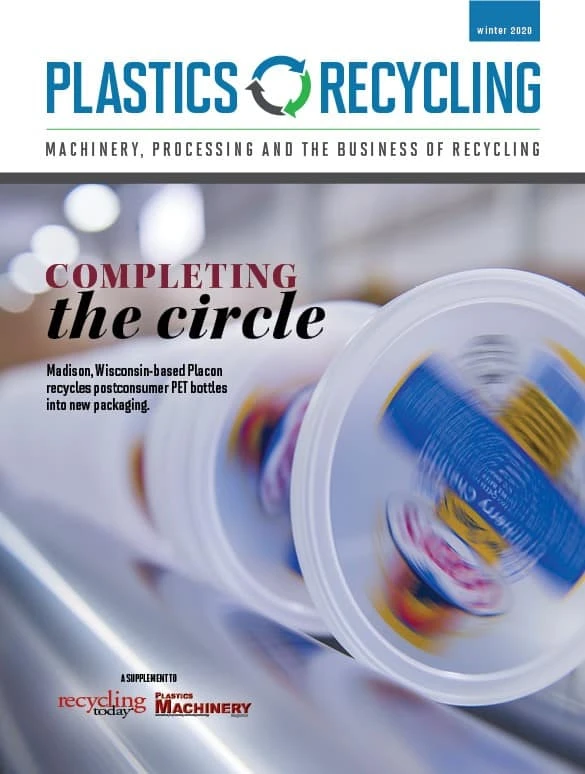
In 2019, the Schroll Group partnered with Stadler to complete a new recycling center at La Maix in the Vosges, near Épinal, France. It was the most recent installation in a long-standing business relationship.
The Schroll Group, based in eastern France, specializes in waste management and recycling. The company provides businesses, public administrators and local authorities with services tailored to their specific requirements. Founded in 1892, Schroll Group serves its customers in France with a team of more than 550 employees. Currently, the company processes more than 1 million tons of recyclables annually at 21 specialized sites.
Altshausen, Germany-based Stadler says the center can process about 88,000 tons of material annually. It was constructed in about 14 weeks and started operating in October 2019.
Stadler designed the plant to allow for future expansion and for sorting more types of material, as well as the possibility of installing robots. Stadler included two independent sorting lines—one for commingled materials and one for containers.
Clément Stehlin, a sales manager for Stadler, says this setup “gives more flexibility by allowing, for example, to work on one line in two shifts and in one shift on the other line.”
The plant processes 16.5 tons of commingled materials per hour, which are fed into a Stadler PPK ballistic separator and two Stadler STT2000-8-1 ballistic separators for mechanical sorting. Optical separation follows using four near-infrared (NIR) units, and the process is completed with manual quality control. The line recovers packaging and small cardboard, cardboard, film, newspapers, magazines and containers. The containers are fed to the plant’s second sorting line.
The container line has 4.5 tons per hour of throughput and sorts material mechanically and optically, with a final manual sort for quality control purposes. The line uses a Stadler STT2000-8-1 ballistic separator, a magnet, a separator for nonferrous metals and five NIR optical sorters to recover clear and colored polyethylene terephthalate (PET), high-density polyethylene (HDPE) and Tetra Pak packaging, as well as aluminum, film, mixed paper and residual fractions.
Four of the container line’s optical sorters recover plastics, positively sorting these materials. Thermoformed packages are not included in the clear PET fraction currently, but the plant is expected to separate this material following a slight enlargement of the line, Stadler says. This is planned for July.
In Épinal, the company recovers approximately 5,650 cubic feet, or five 20-foot containerloads, of clear PET; 2,472 cubic feet, or three containerloads, of colored PET; and 2,119 cubic feet, or two containerloads, of HDPE daily.
“We appreciate Stadler’s ability to meet commitments, advise us and respond to changes during equipment setup,” says Pascal Schroll, a co-owner of Schroll Group.
The company first partnered with Stadler when it built its first sorting center in 1999. Stadler has since built five more sorting plants and renovated another facility for the company.

Explore the Winter 2020 Plastics Recycling Issue
Check out more from this issue and find your next story to read.
Latest from Recycling Today
- Aqua Metals secures $1.5M loan, reports operational strides
- AF&PA urges veto of NY bill
- Aluminum Association includes recycling among 2025 policy priorities
- AISI applauds waterways spending bill
- Lux Research questions hydrogen’s transportation role
- Sonoco selling thermoformed, flexible packaging business to Toppan for $1.8B
- ReMA offers Superfund informational reports
- Hyster-Yale commits to US production





